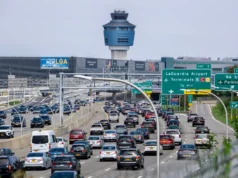
The travel industry has changed a lot in the past decade. Booking your own hotel rooms or plane tickets used to be a long and frustrating affair involving calling into different airlines and hotels to compare prices. You could outsource that dizzying work to a travel agent, but that involves a middleman and there’s a premium to their service. Also, around 80% of people prefer to do their own bookings. Nowadays, preparing travel and lodging for a business trip or family vacation is trivial. Simply hop onto one of the many bargain travel sites on the internet, select your destination and planned travel date, and the platform serves you a list of hotels and airlines that can accommodate you. But have you ever wondered about the technology that makes these kinds of sites work?

Web Scrapers and Travel Aggregators
According to Oxylabs, bargain travel sites, also known as travel aggregators, rely on specialized automated software known as web scrapers to gather up information on travel fares and hotel room prices.
Web scraping is the broad term used to describe the process of collecting large amounts of publicly available data from the internet. If you’ve ever Googled a topic in search of sources for an essay or compared product prices on eBay, you’ve already performed a rudimentary form of web scraping! But imagine having to manually scour the websites of travel agencies and airlines to get ticket data for all the flights to and from every location throughout the year. It doesn’t matter how many college interns you throw at this problem; you’d never be able to get all of it! That’s not even taking into consideration fluctuating prices, discounts, special travel packages, the increasing demand from customers for environmentally sustainable travel options, and seating availability.
It’s impossible to collect all of this information and keep it up-to-date manually. After all, customers want to know how much that ticket costs now, not half-an-hour ago. Additionally, more and more people are making last-minute, impulse bookings that depend on the latest pricing info.
Modern technology has provided an elegant solution to this problem: web scrapers. A web scraper is a piece of software that you can program to collect very specific data from a pool of targeted websites like ProWebScraper. For instance, you can instruct a web scraper to grab all information about the types and prices of rooms from the websites of popular hotel chains. This information is then automatically stored in a database or online server for you. Not only are web scrapers much, much faster than brute force manual data collection, they can also be told to keep an eye out for price changes and update your database. This way the pricing information that is served to customers is always up-to-date and relevant.
Travel aggregators have armies of web scrapers that operate around the clock collecting travel pricing data from the internet. When you go to their websites to look up ticket prices, their interface lets you filter through this database for the destination and date of your choosing. The website’s back-end then grabs all the ticket prices relevant to your search and presents them to you, often sorted by price.

One Issue: Websites Block Bots
There is one issue with automated data collection: websites block bots – and for good reason. Although web scraping is perfectly legal – and, in fact, travel agencies, wholesalers, and distribution systems love the extra business they bring! – some people use automated software for nefarious purposes. Without the proper restrictions in place, an individual could flood a travel agency’s website with data requests, inundating their servers with packets and shutting down their services.
To counter this, most websites monitor incoming requests and limit the number of connections per IP address. If that limit is reached, they will prevent any new connections from that address. If too many connection requests are being initiated by a single IP address, they may block that IP address completely. This presents an issue for travel aggregators; their entire business model is based around the work of automated bots maintaining multiple connections at all times! This is where proxies come into the picture.

How Travel Aggregators Use Proxies
A proxy is a type of server that functions as an intermediary for all interactions with the internet. Instead of connecting directly to the website you want to access, you connect to the proxy and tell it what website you want to see and what data you want to get. The proxy then relays these requests to the website. The website receives the request from the proxy, grabs the relevant data from its servers, then feeds it back to the proxy. Finally, the proxy receives that data and sends it back to you.
Crucially, the website you’re accessing only communicates with the proxy. The site has no way of knowing the identity of the person actually making the requests. This means that you will appear to be connected from that proxy’s location and address.
Travel aggregators maintain huge pools of proxy addresses that they can then assign their scrapers. This makes it so that each individual scraper appears to be connecting from its own IP address, allowing them to circumvent the connection limits that websites have in place.
Not all proxies are created equal, though. In order to ensure maximum uptime and the stability of their web scrapers, travel aggregators must be very picky with the proxies they use. Dedicated proxies, a type of proxy that guarantees one IP address to each user, are a necessity in order to ensure that their scrapers don’t get blocked by the sites they’re collecting data from.

Summary
Bargain travel sites, also known as travel aggregators, serve users hotel and travel information from multiple distributors, travel agencies, and airlines. They collect this data through the use of special automated software known as web scrapers. However, many websites have special security measures in place that prevent multiple connections from a single address. In order to get around this restriction, travel aggregators use proxies to make their web scrapers appear to be connecting from different locations.









